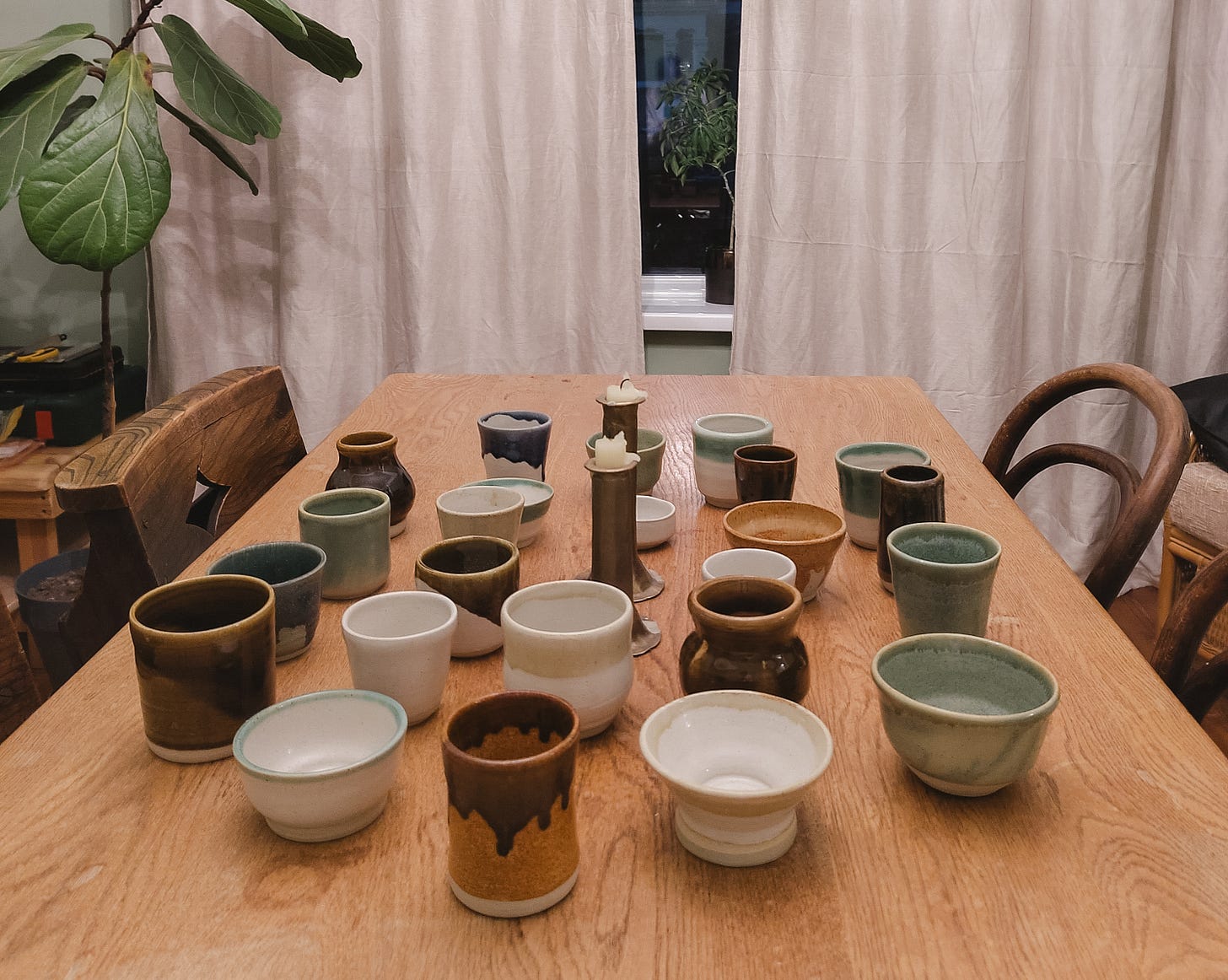Recently I learned something that, in hindsight, probably should’ve been obvious: I can’t create if I’m burnt out.
I’ve always been someone who feels happiest when I’m writing, making, photographing, painting, or engaging my imagination in some way. It’s when I feel most like me. But as much as I know how good these things make me feel, how important they are for my wellbeing, it’s so easy to let them fall to the wayside when I’m busy or tired.
And that’s exactly what happened over the past couple of years. As I talked about in my last post, chronic health issues made it increasingly hard to do much at all outside of work. I was so tired when I logged off for the day that it was a win if I could cook dinner, and any thought of doing something creative in my free time seemed almost laughable.
I struggled to access the creative part of my brain at work, too. In the depths of my brain fog, I remember telling my partner, James, “I can’t write anymore”. And it really scared me. I’ve always loved the written word, but there were months last year when I just couldn’t seem to conjure a remotely interesting sentence.
Since stepping away from that role to focus on my health, creating has been an important part of my recovery.
I’ve started going out on photowalks again - stepping out of my house with my camera and no other agenda than to take photos of the world around me. One of my main aims in 2025 is to renew my focus on freelance photography work, after discovering I didn’t have the time or energy to pursue it alongside a 9-5. It’s also been a while since I had a regular personal photography practice, so that felt like a good place to begin.
I’ve started writing again, too - just a little, at first - thanks to reading The Artists’ Way and following its Morning Pages. The idea, here, is that you write three pages of unfiltered thoughts every single day, first thing in the morning, to help clear your mind of any intrusive thoughts, worries or preoccupations. Admittedly, I’m not very good at sticking to this daily, but even a semi-regular practice has been so beneficial.
Finally, and perhaps most surprisingly, I fell in love with ceramics.
I’ve always admired beautiful, handmade pots from afar - hoarding mugs bought from local makers, delighting in the discovery of vintage jugs and vases at markets, gazing in awe at the forms of ancient ceramics behind glass at museums - but as much as I felt drawn to them, they felt like such a mysterious art form to me. James and I had attempted a single-day introduction to wheel throwing workshop earlier in the year, and I was baffled by just how difficult it was to make the clay do what I wanted. How did our teacher make it look so easy?
Despite coming away from that workshop without anything even vaguely resembling a pot, I felt a pull to try again. I had the itch now.
So when the opportunity came, I signed up for a four week wheel throwing course. And it was hard, but I loved it. I really loved it. The studio had time allocated for students to practice between sessions, and I think I turned up for extra time every single week. Sometimes twice. I probably practiced too much at times, miss-judging the amount that I could do before triggering Post Exertional Malaise (a really fun symptom of my Chronic Fatigue Syndrome), but I didn’t really care. I’d take the energy crashes for all the fun I was having, and the positive effects I noticed on my mental health.
Even though this art form is completely new to me, there’s something oh so familiar and comforting about the way it makes me feel. Whether that’s down to the incredible feeling of being in a flow state, the reminder of what it’s like to play with a new medium, the way that learning how to do something new scratches a particular itch in my brain… or some combination of all of these things, I’m not quite sure. But I do know that it feels so joyful, and so freeing.
I think, sometimes, we forget that we’re allowed to try new things as adults.
But learning can be both a lot of fun and so beneficial for our brains. There’s a lot of talk in chronic health recovery circles about the importance of neuroplasticity, the brain’s ability to change throughout our lives. Meeting new people, learning new skills and creativity of any kind can help to form new synaptic connections, keeping our brain healthy and adaptable. This is thought to be beneficial for many mental health conditions, as well as chronic illnesses like CFS.
This is what I remind myself when I feel guilty for pouring so much time and energy into a new hobby. There’s an anxious, panicky part of my brain that likes to point out that I left my job to focus on my health, and says I need to get well and get back to earning as soon as I can. This isn’t productive enough, it whispers. This is selfish. I try to hold space for this part of myself, remembering that it’s just a product of growing up in a capitalist society. But I don’t let it win.
Not everything has to be productive, I whisper back, and besides, this is part of healing.
Helen x




Such a beautiful read. I love how you reignited your creativity by trying new things. I am trying to allow myself to have that curious and free of expectations mind of starting something new - in my regular practice. It’s not easy but so worth the effort.
And your pots are lovely! ☺️
I can relate so much. Brilliant post! xo